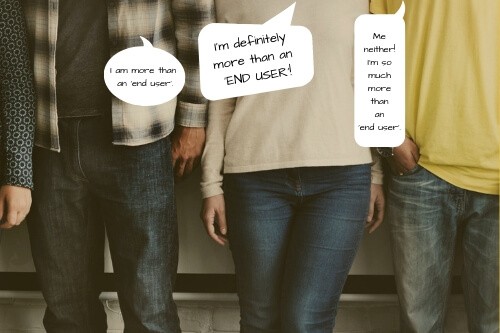
YouTube / iTunes / Spotify / Radio Public / Pocket Casts / Google Podcasts / Breaker / Overcast
Listen to ArtisanEnglish.jp posts & lesson intros here.
Word of the Day: End user
People are not people anymore.
We are consumers.
After purchasing a product or service, we become end users.
It’s no joke and no secret that the business–customer relationship is declining in our consumerist societies.
I dislike that last term end user.
If you don’t know what it is, it’s the person a product was designed for.
It sounds so final.
I can’t imagine referring to my students as end users.
I’m in the business of providing knowledge and skills, not coffins.
Come to think of it, I wonder if coffin manufacturers refer to their customers as end users.
Let me get back on track here.
A company’s job is to enable its customers, just like it’s my job as an English teacher to enable my students to have confidence and the ability to use their English language skills to enhance their life enjoyment.
Students can’t be end users, can they?
When we learn something, we are at the beginning of forever.
Anyway, we would be naive to think that companies don’t exist to make money.
That’s their raison d’être – making profits.
We can’t blame them for that.
Everyone needs to put food on the table and a roof over their heads.
What we can blame companies for is thinking of us, the customers, merely as end users and, at times, encouraging us to throw good money after bad because it’s good for their bottom line.
In case you haven’t noticed yet, I dislike the term end user.
When I purchase something, I should be considered as having an ongoing relationship with the company.
There should be a trusting relationship between a company and its customers.
I, for one, can’t trust a company which thinks of me as an end user.
Flesch-Kincaid Readability Test
This post is understandable by someone with at least a 7th-grade education (age 12).
On the Flesch-Kincaid reading-ease test, this post scores 70.
The easier a passage is to read, the higher the score on a scale of 0 – 100.

